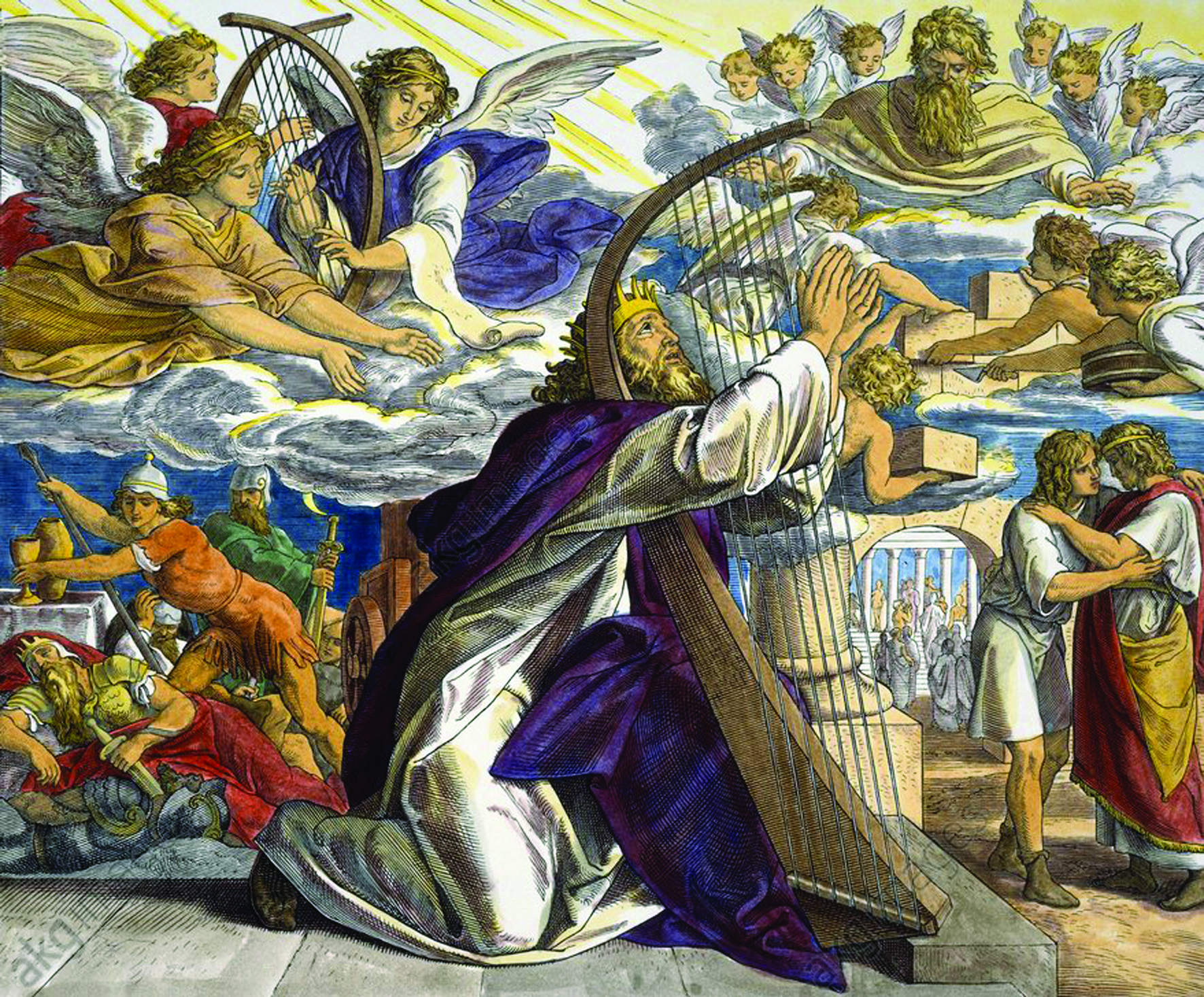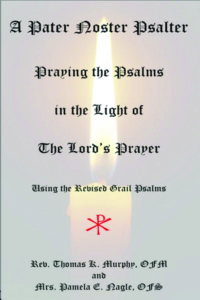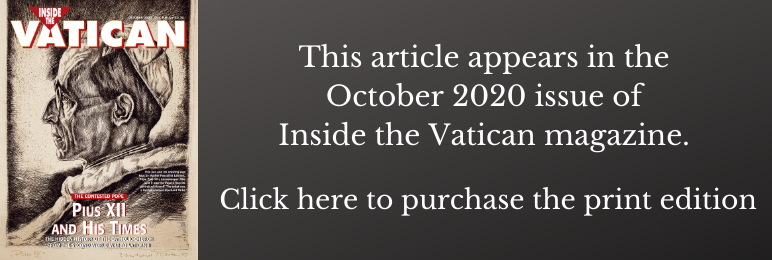A new arrangement makes it easier – and more understandable
By Rev. Thomas K. Murphy, OFM*

In the illustration, King David, to whom tradition attributes the authorship of the Psalms
In 1969, after a three-and-a-half year stint as a U.S. Army chaplain, I studied pastoral counseling while assigned part-time to St. Anne Church in Fairlawn, N. J., a Franciscan parish of Holy Name Province. It was the time of the Catholic Charismatic Renewal. There was a parish prayer group, and very soon some of the members came to me, demanding Bible classes.
Catholic seminaries are not known to specialize in biblical studies. For centuries, seminaries had presented the faith in terms of systematic theology: great theologians like Thomas Aquinas had mastered all the Scriptures and presented the truths of the faith in clear, highly reasoned treatises. Where was I to begin teaching the 73 books of the Holy Bible?
I called a bright young Franciscan friar whom I had taught at Timon High School in Buffalo, N.Y. After joining the Franciscans, he had studied Scripture. Wisely, he counseled, “Start with the Psalms.”
That is what I did. Around that time, Biblical scholars were writing about the Psalms in terms of categories. (A good example of this kind of scholarship is in the book, The Psalms, by Leopold Sabourin, S.J. ) So, I began teaching the prayer group about the Psalms according to the different categories, i.e., Hymns of Praise and Thanksgiving, Royal Psalms, Wisdom Psalms, Penitential Psalms, Laments, etc.
To my amazement, I discovered that seven categories of Psalms could easily be matched with seven phrases of the Lord’s Prayer, and both Biblical forms of prayer could be presented on the seven days of the week, as in the following chart:
Sunday – Our Father Who Art In Heaven
12 Confidence Psalms
Monday – Hallowed Be Thy Name
35 Hymns of Praise and Thanksgiving Psalms
Tuesday – Thy Kingdom Come
23 Royal Psalms
Wednesday – Thy Will Be Done
22 Wisdom Psalms
Thursday – Give Us This Day Our Daily Bread
10 Supplication Psalms (Laments)
Friday – And Forgive Us Our Trespasses
10 Penitential Psalms (Laments)
Saturday – . . . And Deliver Us From Evil
38 Deliverance Psalms (Laments)
Jesus Himself had summarized the main ideas in the Psalms into a brief prayer! In turn, this raised prayer to a new, and wonderful, level.
Later on, in 1991, I began to work with the Secular Franciscan Order (formerly the Third Order of St. Francis). In 1993, to help the members who were attempting to pray daily the Liturgy of the Hours, we self-published a book, Sing to the Lord a New Song: Praying the Psalms in the Light of the Lord’s Prayer. It contained only 75 of the easier Psalms, but they were arranged as described above. At the time, I promised that we would try to publish another book containing all the Psalms.
 In 2017 we self-published that book, A Pater Noster Psalter: Praying the Psalms in the Light of the Lord’s Prayer. As far as we know, it was the first time in Church history that a complete Pater Noster Psalter has been made available.
In 2017 we self-published that book, A Pater Noster Psalter: Praying the Psalms in the Light of the Lord’s Prayer. As far as we know, it was the first time in Church history that a complete Pater Noster Psalter has been made available.
In our day most Catholics are not familiar with the Book of Psalms. The Liturgy of the Hours in its present four-week cycle of Psalms presents, each day of the week, six or seven different categories of Psalms; one must constantly skip from one category to another — an arrangement that tends to inhibit a better understanding of the Psalms.
In our book, each day of the week contains only one category of Psalms. Praying the Psalms this way will increase one’s familiarity with the Psalms of each category and make them easier to understand.
In the course of each week, those praying the Psalms will also be praying the whole of the Lord’s Prayer along with the Church.
***
To order a copy of A Pater Noster Psalter: Praying the Psalms in the Light of the Lord’s Prayer, contact The Franciscan Store, www.franciscanstore.org, and search “Pater Noster Psalter” in Books and Booklets. All proceeds go toward making more books available to all Christians.
 Father Thomas K. Murphy, O.F.M. served as the Regional Spiritual Assistant for more than 800 members of the Secular Franciscan Order in Florida, South Georgia, and Lower Alabama from 1991 through 2013.
Father Thomas K. Murphy, O.F.M. served as the Regional Spiritual Assistant for more than 800 members of the Secular Franciscan Order in Florida, South Georgia, and Lower Alabama from 1991 through 2013.






Facebook Comments